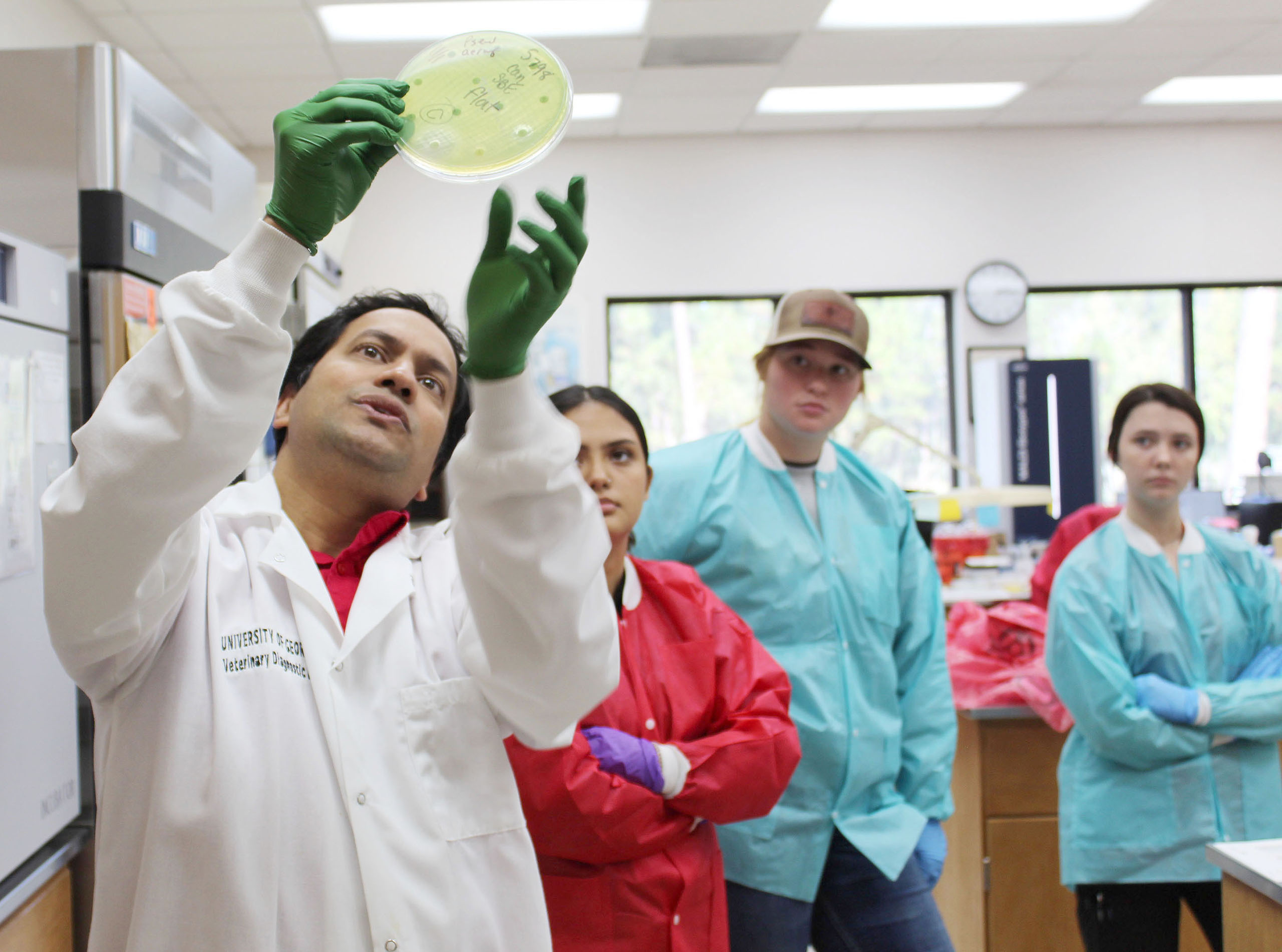The Tifton Veterinary Diagnostic and Investigational Lab regularly welcomes students from the Abraham Baldwin Agricultural College (ABAC) to its offices for daylong workshops exploring career pathways in veterinary medicine. More than 150 ABAC students have participated in the Veterinary Diagnostics and Careers in Veterinary Medicine Workshop since it was first offered in 2018. The partnership between the schools is funded by two competitively awarded grants from the U.S. Department of Agriculture: i) NLGCA Capacity Building grant in partnership with ABAC, and ii) Higher Educational Challenge Grant for multi-institutional collaborations with schools, colleges and Universities in South Georgia.
Dr. Jennifer Harper, professor of biology at ABAC, said the collaboration between colleges aims to level the playing field for urban and rural applicants to veterinary schools. Harper leads the program with Dr. Hemant Naikare, professor of Infectious Diseases at the UGA College of Veterinary Medicine and Director of the Tifton lab.
“The majority of our ABAC students are from rural areas of the state, and we saw that they were not as successful at being accepted into vet schools as compared to their urban counterparts because they had not had access to different opportunities found more commonly in larger cities of the state,” Harper said. “Students are given a tour of the departments of the lab so they can learn more about procedural aspects involved in veterinary medicine that they might not ever participate in at a local veterinary hospital.”


